Hazar Chaurasi Ki Maa (1998) – A mother's grief and awakening
Literarily Speaking: Govind Nihalani's Hindi movie was inspired by Mahasweta Devi’s Bengali novel
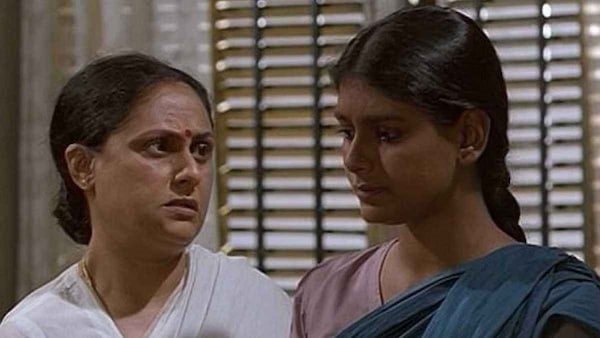
Last Updated: 07.38 PM, Jan 03, 2024
In our column, Literarily Speaking, we recommend specially-curated book-to-film adaptations that will leave you spell-bound
Set during the Naxalbari movement in West Bengal of the 1960s and 1970s, Mahasweta Devi’s ‘Hajar Chaurashir Maa’ is the story of Sujatha. She is the wife of Dibyanath Chatterjee and a mother of four grown-up children – Jyoti is her older son, Neepa and Tuli are her daughters, and Brati is her younger son. Sujatha is a dutiful wife but has made some token push backs against her philandering husband by securing a job in a bank. She is resentful of those protective of Dibyanath and his indiscretions - from his mother to Jyoti, Neepa and Tuli. Only the empathetic Brati, ever unsure of his place in the family, is a source of solace for her.
The novel depicts a specific day in the present life of Sujatha, January 17th, which is not only the day her daughter Tuli is to be engaged, but also happens to be the birth date of her son, Brati. It is also the day two years ago when Brati was killed along with his four friends for their Naxal links by henchmen presumed to be hired by the police. Sujatha’s heart is not in the festivities surrounding her daughter’s engagement, and she resents that nobody consulted her about fixing the engagement date on the anniversary of Brati’s brutal death.
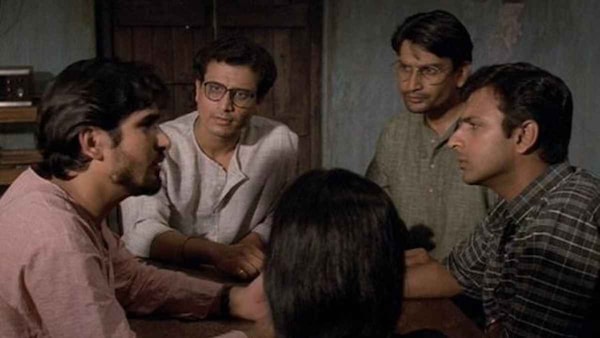
Sujatha remembers the day from two years ago, of visiting the morgue to identify a corpse listed as 1084, even as her husband and older son attempt to control the repercussions this would have on their social standing. Sujatha is denied Brati's body by the police, and learns of his Naxal connections. Once the police complete their search for evidence in their home, Brati's remaining belongings are relegated to his room. He is not mentioned in the house thereafter.
Sujatha’s grief is all-consuming. Sujatha blames herself for being so blinded by her love for Brati that she did not grasp the dangers of his pursuit to realise a collective dream of a better society. Since the days he began sympathising with the Naxals, Sujatha has felt disconnected from Brati. She now searches for him in the people he knew intimately in his last days.
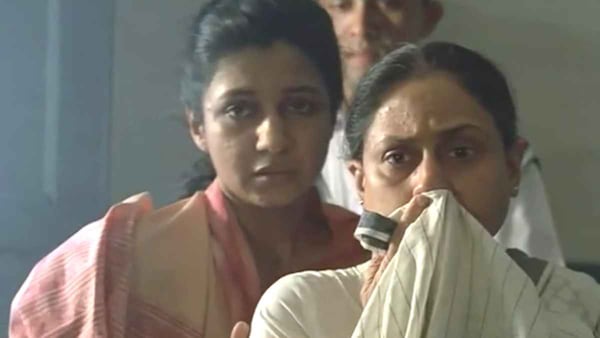
On this day, Sujatha visits the mother of Somu, killed alongside Brati right outside his impoverished home. Sujatha is deeply aware of her social privilege compared to Somu’s mother and learns that Somu’s reputation as a Naxal has indeed affected his family socially. Somu’s mother was one of the last people to see Brati alive, and Sujatha visits her, desperate to find out every little detail about her son's last night alive. Somu’s mother, who remains unnamed, narrates in detail the last hours of the five friends, and reveals in passing that the henchmen who had killed them roam freely in their settlement.
Sujatha also visits Nandini, Brati's lover and fellow revolutionary. We discover that Nandini suffers from the effects of the police interrogation wreaked upon her soon after Brati’s death. She reveals to Sujatha their betrayal by a friend, Anindya, but Nandini also feels betrayed by politicians, the media and society in their selective blindness towards the torture meted upon thousands of incarcerated youth for their connection to the Naxal uprising.
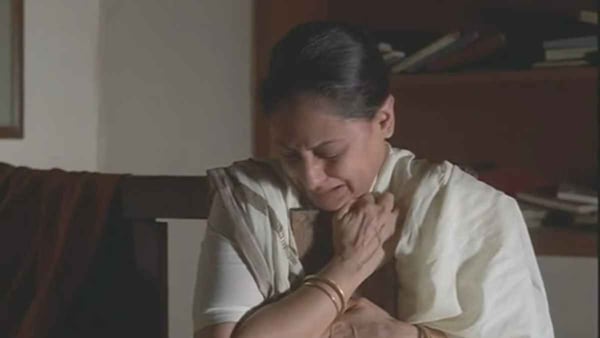
Nandini reveals that Brati not only knew about his father’s indiscretions, but he had also confronted him about it. Sujatha realises how little she knew about her son, and she now understands Brati’s emotional distancing from his father in the last year of his life. She feels bereft that Brati had put his life on hold to ensure she didn’t become isolated within the family. She regrets not acting earlier, in Brati’s lifetime, to set herself free of the shackles of her family, thereby setting him free of her responsibility to pursue his ideals.
The movie
While the narrative in the novel goes back and forth in time, disorienting in its absence of dialogue attribution, the movie is mostly chronological with monologues and flashbacks. Govind Nihalani’s ‘Hazaar Chaurasi ki Maa’ is that rare movie adaptation that remains true to the book, but also takes the story further.
In both the novel and the movie, Sujatha (Jaya Bachchan) returns home after meeting Nandini (Nandita Das) and decides to leave her family. She is detached in her participation in the festivities at home but is forced to greet her future son-in-law’s guest, DCP Saroj Pal (Milind Gunaji) who oversaw the investigation into the Naxal connection in the death of Brati (Joy Sengupta) and his friends. It is implied that he has also tortured Nandini.
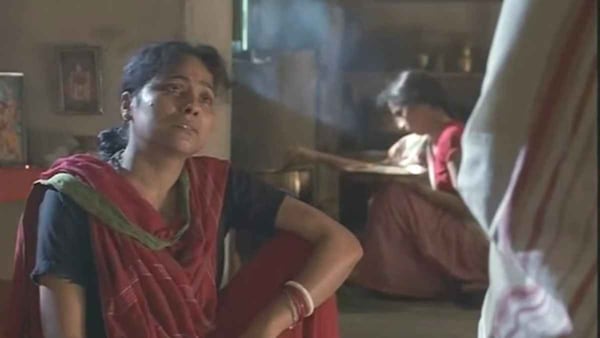
Sujatha now perceives her family as a microcosm of a rotten society. She is repulsed by the idea that her son was murdered so that the morally corrupt – people like her husband, her other three children, their families, politicians, the police, intellectuals, and materialistic society – could thrive. Sujatha holds them complicit in her son's death and refuses to participate in their pretence of normalcy.
The novel begins with Sujatha in pain due to appendicitis, and she compares it with the labour pain at the time of Brati’s birth. The novel ends with Sujatha in agonising pain, but in the movie, it is a symbolic birthing, a painful rite of passage to a renewed purpose to keep Brati alive in her memories through her service to human rights.
There are parallels between Brati’s and Sujatha’s lives. In death, Brati is stripped of his identity and attributed a corpse number – 1084 - while Sujatha is only addressed as the mother of 1084 by the police. Sujatha’s husband Dibyanath (Anupam Kher) and older son ensure that Brati’s name is erased from the related newspaper report. By not consulting Sujatha on the engagement date, they reduce her to a non-entity, who is expected to comply with their decisions.
Sujatha and Somu’s mother (Seema Biswas) are bound by their grief as mothers of dead sons. Sujatha is the more privileged of the two, but she is so marginalized by a patriarchal family that she is unable to cry as freely as Somu’s unnamed mother who lives in penury. Sujatha and Nandini are bound by their fear of one day forgetting their beloved Brati. While Sujatha is socially near-equal to Nandini, the latter is perhaps the only woman in the novel and the movie, who is most aware of her agency.
Both the novel and the movie are about the personal and the socio-political. Sujatha is caught between her son's rebellion (symbolic of the Naxalbari uprising) and her family's strictures (symbolic of the government's intent to quell dissent). This is a nuanced story about loss, where the bereaved Sujatha is as much a victim as her dead son.
You can watch Hazar Chaurasi Ki Ma here.
(Views expressed in this piece are those of the author, and do not necessarily represent those of OTTplay)
(Written by Saritha Rao Rayachoti)

